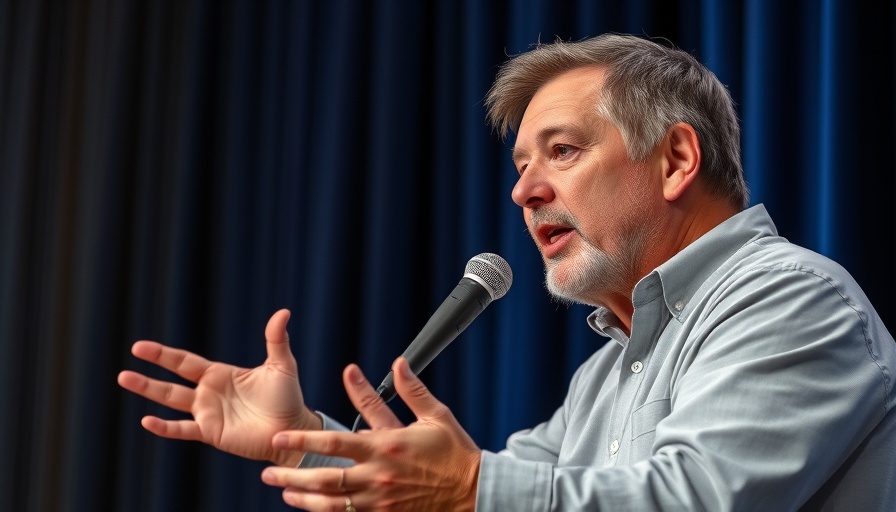
Exploring the Question: Can We Trace Genetics Back to Noah?
The debate around whether we can trace our genetics back to Noah has captured the interest of both believers and skeptics. In a world where genetics and science are often at odds with biblical narratives, understanding how our DNA might connect us to this pivotal figure is important for various audiences - from those strengthening their faith to those questioning established beliefs. This inquiry does not merely touch on scientific lineage; it explores European, Middle Eastern, and even genetic ties that may reach all the way back to this ancient figure.
In Can We Trace Genetics Back to Noah?, the discussion dives into the intriguing relationship between faith and genetics, exploring key insights that sparked deeper analysis on our end.
Historical Context of Noah in Genetics
To grasp the implications of tracing genetics back to Noah, we must first familiarize ourselves with the biblical account. According to the Book of Genesis, Noah is described as a righteous man chosen by God to preserve humanity and animal life through the Great Flood. After the flood, Noah's three sons—Shem, Ham, and Japheth—are said to have repopulated the earth. This narrative suggests that humanity has a common ancestral lineage that connects us back to these three men.
The Intersection of Faith and Genetics
At the heart of this inquiry lies an intriguing intersection between faith and modern genetics. While scientists can analyze mitochondrial DNA and Y-chromosomes for ancestry tracking, believers often use these studies to affirm or question scriptural truths. Many believe tracing our lineage to Noah supports not only biblical history but also our unity as a human race. Yet, the scientific community often interprets these findings through a different lens, focusing on evolutionary biology rather than scriptural accounts.
Understanding Genetic Diversity
What does modern genetics tell us about Noah’s descendants? Today, experts agree that genetic diversity is profound. Mitochondrial DNA studies suggest that all modern humans have a common maternal ancestor, often referred to as “Mitochondrial Eve.” Likewise, Y-chromosome studies have indicated a common paternal lineage. These studies invite us to consider: Could Noah actually represent the genetic convergence point for humanity based on his sons? Or, does the complexity of genetics tell a more nuanced story?
Counterarguments and Diverse Perspectives
While tracing lineage to Noah presents one perspective, there are plenty of counterarguments. Critics assert that the genetic evidence does not substantiate a biblical framework. Many argue that genetic models are too simplistic to explain the vast intricacies of human history. The science of genetics has proven that while there may have been fewer ancestors at some point, it isn't necessarily indicative of a single family, thereby challenging the traditional interpretation of Noah’s role as humanity's sole progenitor.
Implications for Today’s Believers and Skeptics
For believers seeking to strengthen their faith, understanding how genetics might affirm scriptural accounts can be reassuring. Church leaders and ministry workers can utilize this dialogue to discuss the relevance of Genesis in modern contexts. For skeptics and seekers, recognizing how faith and science can coexist may foster a more profound exploration of biblical texts. Parents and educators can encourage youth to engage with these provocative discussions as a way to bridge the gap between ancient teachings and contemporary scientific understanding.
Actionable Insights for Engaged Learning
Choosing to engage with the history and theology behind our genetics encourages both education and spiritual growth. Discussions around the lineage from Noah can prompt church leaders to provide teaching moments that blend faith and science. Young students can take these conversations to foster critical thinking, exploring questions such as: "What does it mean to be part of one human family?" or "How do our beliefs influence our understanding of scientific discoveries?"
By seeking to understand our origins—both spiritually and genetically—we can appreciate our shared humanity more deeply.
In reflecting on the video, Can We Trace Genetics Back to Noah?, we uncover an intriguing exploration of our origins and our collective human story. This dialogue between faith, genetics, and historical narrative invites all of us to consider our place in the continuity of life, connecting faith to science in meaningful ways.
 Add Row
Add Row  Add
Add 








Write A Comment